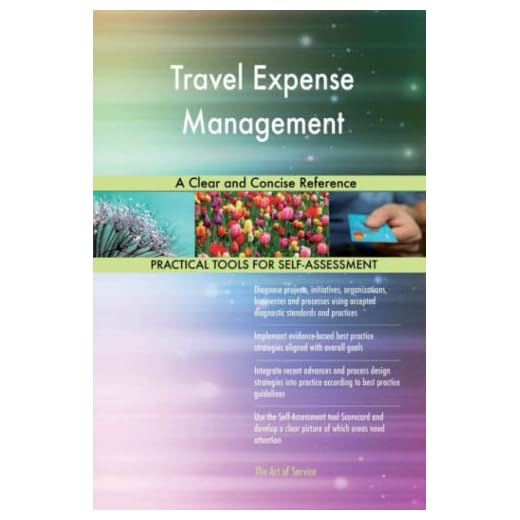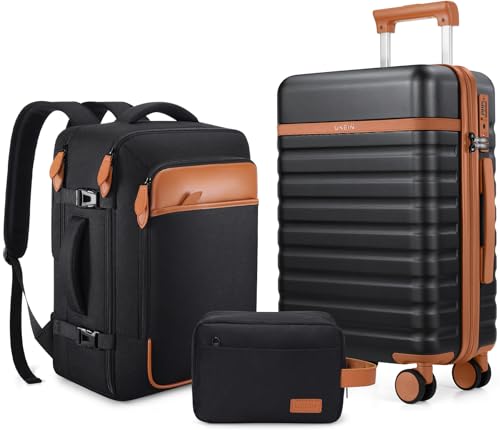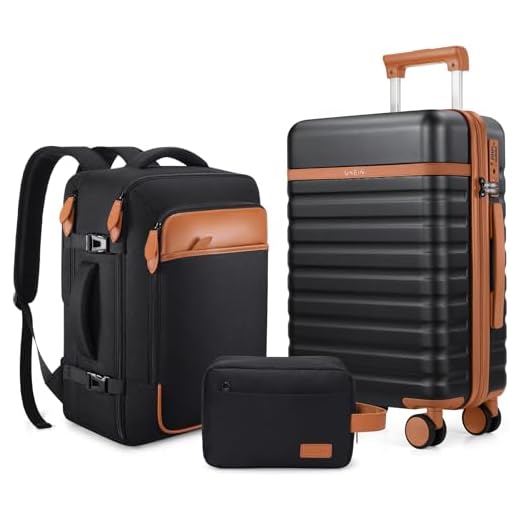



To clarify, expenses related to personal belongings used for work purposes, such as during business trips or assignments, may qualify for relief under certain conditions. To take advantage of this potential benefit, you must be able to demonstrate that these items are necessary for your professional responsibilities.
Document your expenditures meticulously, including receipts and travel itineraries. The specific criteria for eligibility can vary significantly based on individual circumstances and local regulations, so consulting a tax professional is advisable for personalized guidance. Certain scenarios, such as remote work that necessitates travel, may further enhance the likelihood of qualifying for this benefit.
Staying informed about the latest tax guidelines can optimize your financial strategy. Make sure to keep accurate records and consult official resources to ensure your understanding aligns with current laws and practices.
Is Luggage a Tax Deduction
Typically, expenses associated with travel gear can be counted as allowable expenses only when they are necessary for business purposes. If the equipment is used solely for personal trips, it is unlikely to qualify for reimbursement through tax credits.
Business Travel Considerations
If your profession requires frequent travel, and you purchase or lease travel bags for that purpose, you may deduct these costs. Keep careful records of expenses and ensure that the travel bags are primarily used for work-related trips to substantiate your claims.
Maintaining Records
Document each purchase with receipts, and note the business reason for travel when applicable. If you’re audited, having these details at your fingertips demonstrates that the expenses are legitimate and linked to professional duties.
Understanding Deductions for Business Travel
Business travelers can capitalize on various expenses incurred during trips, significantly impacting their financial balance. Accurate documentation is vital. Maintain records for all costs, including accommodation, meals, transportation, and fees associated with your professional activities. This ensures you maximize potential savings.
Eligible Expenses
Eligible costs generally encompass airfare, hotel stays, and ground transportation, among others. Meals can also qualify, but keep in mind rules specifying a percentage limit on costs eligible for reimbursement. Consider meals only during business meetings, as personal meals do not qualify.
Documentation Tips
Maintain clear and accurate records, including receipts and invoices. Utilizing a travel expense log can streamline your reporting process, making it easier to categorize expenses appropriately. Consider electronic tools or apps designed to track these costs efficiently and support your claims.
Criteria for Deductible Travel Expenses
To qualify for reimbursement regarding business trips, expenses must meet specific criteria. Expenses should be ordinary and necessary, directly related to the conduct of business or trade.
Ordinary and Necessary
These terms imply that the costs must be common within the industry and essential for the work being performed. Here are key factors:
- The expense must be common and accepted in the taxpayer’s field of business.
- It should be appropriate and helpful for the business activities being conducted.
Documentation Requirements
Appropriate records are essential to validate expenses. Keep the following:
- Receipts for all purchases, including hotels, meals, and transportation.
- Travel itineraries and any correspondence that supports the purpose of the trip.
- A log detailing dates, locations, and business activities conducted during the trip.
Adhering to these guidelines ensures a smoother process when claiming expenses related to work-related travel. Keeping organized documentation is critical for compliance and potential audits.
How to Calculate Luggage Costs for Tax Purposes
To assess expenses related to storage and transportation gear for your trips, maintain detailed records of all purchases and relevant fees. Organize your receipts and invoices, ensuring that they clearly indicate the date, amount, and items acquired. This information will be essential for accurate calculations.
Evaluate the total costs by listing individual items along with their prices. Make sure to separate costs by category, such as acquisition costs for gear and additional fees like baggage handling or shipping. Utilize the following table to assist in your calculations:
| Item | Cost |
|---|---|
| Travel Gear | $150 |
| Shipping Fees | $30 |
| Storage Solutions | $45 |
| Total | $225 |
Incorporate additional expenses that are directly related to your business activities. For instance, if using the best luggage compression cubes enhances organization and minimizes overage fees during flights, document this purchase as well. Maintain a justification for why each expense is pertinent to your business operations.
At the end of the accounting period, sum up the total expenses. Ensure that you have a clear rationale for each item, supporting its necessity for business purposes. Consult a tax professional if you are unsure about what qualifies for deductibility. Tracking all relevant expenses accurately will help streamline the process and potentially maximize your returns during assessments.
Additionally, investing in a high-quality case, such as the best travel briefcase for men, could also be justified, as it may improve efficiency while traveling for work.
Documentation Required for Luggage Deductions
To effectively claim expenses related to your travel gear, maintain thorough records. First, keep receipts for all purchases made for your travel items, ensuring they specify the date, vendor, and item details. This serves as primary evidence for these costs.
Additionally, document your travel itinerary, highlighting the purpose of each trip. This should clarify the business nature of your travel and provide context for the expenses incurred. Include any correspondence or documentation from clients, contracts, or agreements related to these travels to further validate your claims.
If applicable, maintain a log of all related travel times, distances, and modes of transport to support your financial entries. Consistently tracking this information can simplify calculations and strengthen your case.
For specific purchases, such as bags or accessories, a breakdown of the costs can enhance your transparency. It’s beneficial to differentiate between personal and business-related expenses where necessary, as this will aid in demonstrating the business use of your travel equipment.
Finally, consider consulting with a financial advisor or accountant who can assist in ensuring your records are compliant with regulations. This step can be invaluable for maximizing your financial efficiency within permissible legal boundaries. For an interesting twist on personal optimization, check out which is the best whey protein powder in india.
Common Mistakes When Claiming Luggage Deductions
One frequent error is failing to distinguish between personal and business use. Ensure that the expenses claimed relate solely to professional activities. Mixed-use costs may lead to audits or disallowance of claims.
Another mistake involves inadequate documentation. Always retain receipts and records, as they are necessary for substantiating your claims. This includes proof of purchase, travel itineraries, and any reimbursement details.
Ignoring Travel Policies
Consult company travel policies regarding reimbursable expenses. Misunderstanding what qualifies under organizational guidelines can result in non-compliance and financial loss.
Overlooking Time Limits
Be aware of the timeframes for filing claims. Each jurisdiction has specific deadlines for submitting expense reports, and missing these can result in denial of reimbursement.
Miscalculating the value of items is another pitfall. Ensure that the claimed amounts reflect actual expenditures rather than estimates or approximations, as this could attract scrutiny from tax authorities.
Neglecting to follow financial guidelines is also common. Familiarize yourself with requirements related to itemization and deductions to maximize your eligible amounts.
Seeking Professional Advice on Tax Deductions
Consult with a certified tax advisor to clarify your eligibility for expensing travel-related items. Their expertise can help pinpoint specific scenarios where you may benefit financially.
Ensure that the advisor is familiar with current regulations regarding expense claims. Their insights could reveal opportunities for optimizing your submissions.
The advisor can also guide you on the importance of accurate record-keeping. Keeping meticulous records of all travel-related purchases is critical for substantiating your claims.
Ask your consultant about the potential for tax credits tied to travel expenditures. Understanding all angles will enhance your financial strategy during business travel.
Reviewing your situation periodically with a professional is wise. They can provide updates on any legal adjustments that may affect your potential benefits.








